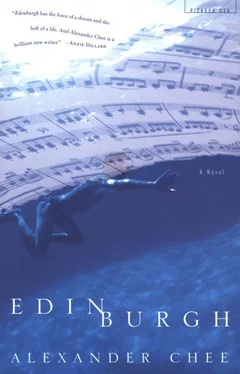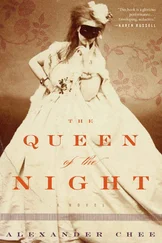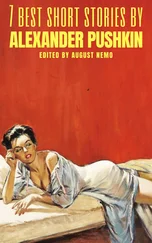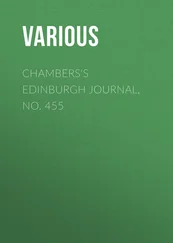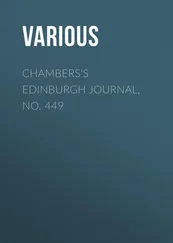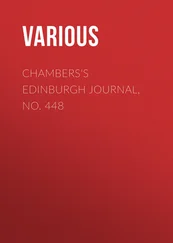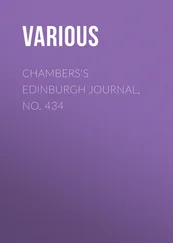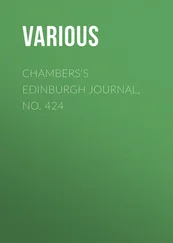I know, he said. I saw the address on the letter. Which way are you going?
To New York, I said.
Oh the fear, he said. You’ll have to leave now. He punched a pillow, puffing it flat, and rolled over into it.
I sat a moment.
Well, he said. I mean, a boy’s got a heart to protect. Go on.
I, I said. I could. Visit.
Mmm. That’ll be fun. What, like you are a sailor at sea or something.
Something, I said. Something.
It turned out he had always wanted to go to New York. I can’t let you drive on your own, he said later, as he packed his suitcase. You could have an accident. My sister’s words about love came to me then: When it’s right, she said, you don’t have to have a committee meeting about it. Later, when we’d been in New York for a few weeks, Bridey said, I had no idea there was so much to see in New York. I’d better stay on a while yet. It turned out that New York required several years of seeing. And when I told him about Maine the first time, he said, You’re always dragging me around. But I see the best of the world with you.
With me? I said.
In you, he said, and stuck his finger in my ear.
3
From the letter my mother sent me, opened, finally, after my arrival in New York, read to me by Bridey:
Darling:
I ran into Freddy Moran’s mother recently, and she was, well, she wasn’t herself and looked as il she hadn’t been in some time. You see, Freddy’s been HIV-positive for a few years now, and recently his health took a turn for the worse. And now she’s been frantic, caring for him. She doesn’t feel up to the job, now that she’s buried her husband, to now bury her son. It doesn’t look real good.
Your father’s been good enough to help get him into a drug trial at Maine Medical’s research wing, and we’re all praying for his good health. I know you two haven’t spoken much, but I wanted to let you know.
I don’t answer this letter. When my mother and I speak next, I don’t ask after him. And the new drugs work for a while. Freddy lasts the three years that will pass until I see him next.
4
Speck dies on an early-summer day when he is, uncharacteristically, in his garden, in Maine. He hated his garden, I remembered. He had a gardener who cared for it and he had told him, when he hired him, Just do enough stuff so that these neighbors of mine don’t complain.
The news of his death reaches me in Provincetown, in a summer share I’d taken with Penny and Bridey. A stroke took him, very quickly, and he felt nothing, the letter I receive from his current assistant tells me. There will be a ceremony in a few days’ time. My mail being forwarded to me, the ceremony, I can see, is tomorrow. I had just written to him, telling him of how I was spending the summer. You shouldn’t be leaving New York then, he had written back, just a few weeks earlier. People like you, the city belongs to you.
He’d helped me get work after I arrived in New York as an artist’s assistant to a wealthy sculptor and landscape designer. We’d seen each other a few times. His book, the one I’d helped him on, had been published years before: A Letter to the Digger: A History of Edinburgh During the Plague, by Edward Speck. I had it on my shelf, and sometimes people would pick it up, and ask, Why do you have this? I like history, I’d tell them, and then we’d move on from there.
The day I get the letter, Bridey and Penny are at the beach together, having left to go early and run. Thick as thieves, is the expression. My oldest friend and my best one, together. Who knew what they might come back with? Some days they returned with a new friend, usually for Penny. Bridey and I had been faithful, another expression. I like to think of it as attentive. We were and are attentive. We occupy all of each other’s attention. And sometimes, to make me laugh, he allows some man to flirt his way home with him. I need to keep in practice, he says, after they go home. In case I get dumped. In the second-floor apartment we’d taken, I wait for these two to return and then I tell them, how it is I have to go to Maine tonight. I call my parents and tell them to expect me, and I drive out the next day in our rented car.
Speck’s final assistant is a graduate student, a much more professional young man than I was when I worked for him, and he greets me at the funeral home with real pleasure. He’s dressed like a true Speck student: gray herringbone tweed coat, with patches on the elbows. A black turtleneck, black jeans, brown oxford shoes. I go in, uncertain of what to expect until I see, at the front, on a pedestal, an urn. I go back out for a moment. Already? I ask.
He left instructions he was to be burned immediately. The student shrugs his tweed shoulders. He abhorred the idea of his body lying around without him in it.
And… speakers, I ask.
No, he says. I go back inside.
In the attendees I see that we are all former assistants, most likely. The moderately sized room is full of men and young men of descending orders of age. A familiar reserve, the articulate quiet I learned from Speck, makes the room familiar, and then of course we resemble each other: dark haired, pale, clean-cut but rumpled from reading and bad lighting. Some balding, many with hair that seems to be rising to Speck’s example. Bachelors all. Looking at his urn we look at our future. We smile at each other some and trickle out after paying our respects to this last quiet with Speck. No one asks if there are any heirs, as we all know there aren’t.
At home, I have a quiet dinner with my mother and father. At the end of it my mother tells me, Freddy’s not doing well.
Why not him too, I tell myself.
Do you want to go see him? I’m sure he’d appreciate it. She picks up all our plates and goes to the kitchen. I recognize a pattern for the first time, of how my mother asks me a question and my father waits for the answer.
Yes, I say. My father smiles reassurance. And I call down to tell Bridey and Penny that I’ll be a little later than I thought. Tomorrow, I say.
We’re using up all the sun, he says. You’d better hurry back.
Penny says something in the background I can’t hear and I ask about it. She said, Bridey says, You’re never leaving Maine. But she has a plan you’ll hear when you get back.
Thick as thieves, I tell myself as I hang up the phone. They’re stealing me.
Do you remember what it was like, to be young? You do. Was there any innocence there? No. Things were exactly what they looked like. If anyone tries for innocence, it’s the adult, moving forward, forgetting. If innocence is ignorance of the capacity for evil, then it’s what adults have, when they forget what it’s like to be a child. When they look at a child and think of innocence they are thinking of how they can’t remember what that feels like.
I have to know how Freddy’s doing. I could call, but instead I go over to Mrs. Moran’s new house. After her husband’s death, my mother tells me, she moved. A quick trip through Portland’s rain-stained houses, all of them a wrong color for happiness up in this part of town, the part between the stores and the sea. The Eastern Promenade, Munjoy Hill. There’s a cemetery here where kids come in and kick the stones down regularly. Because they probably hate the dead for being free from the sights around them.
Her house is near the sea. In a sense all of Portland is near the sea. Red-brick buildings, mostly, in a crest over the land on the rise of hill here, a gentle brick murmur to the slope of the whole town no matter where you are, the slope Irom where the glacier came through. Don’t think this means Portland isn’t beautiful; it’s why it’s beautiful. In any case. She stands taking in her mail as I arrive. I barely recognize her. And she doesn’t recognize me.
Читать дальше
